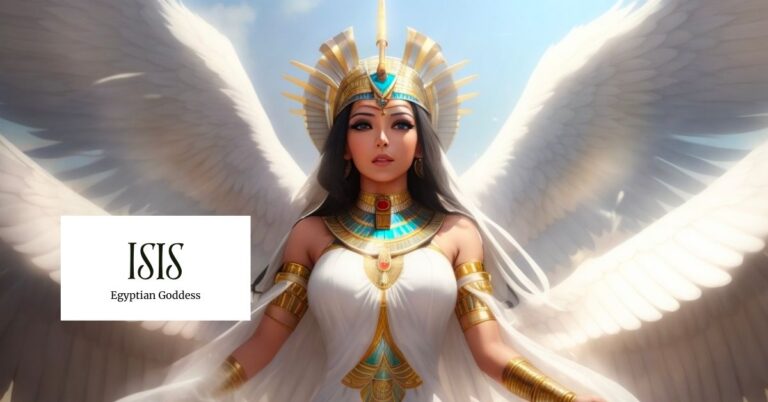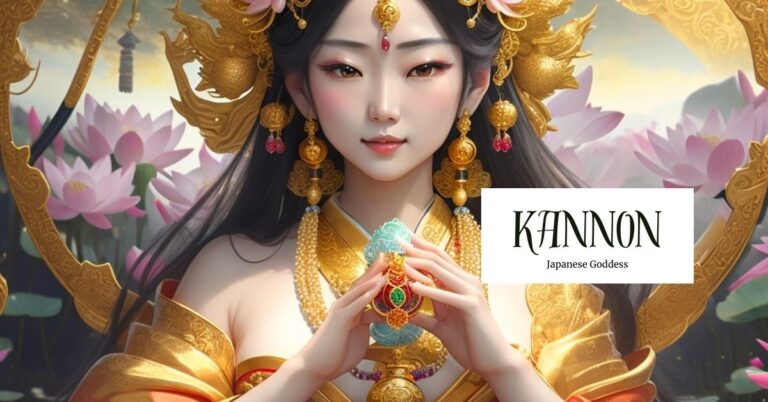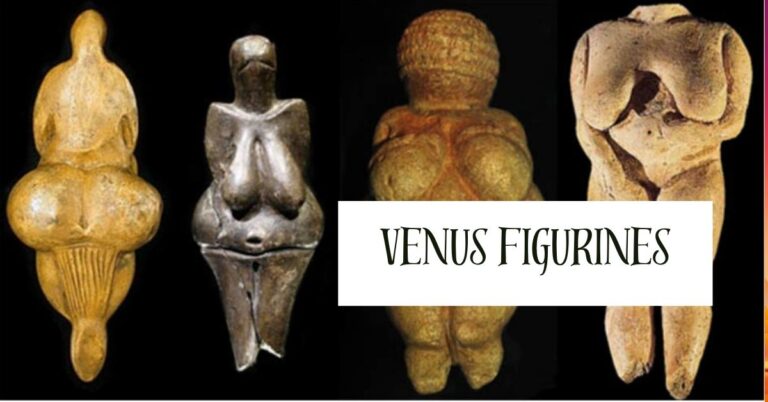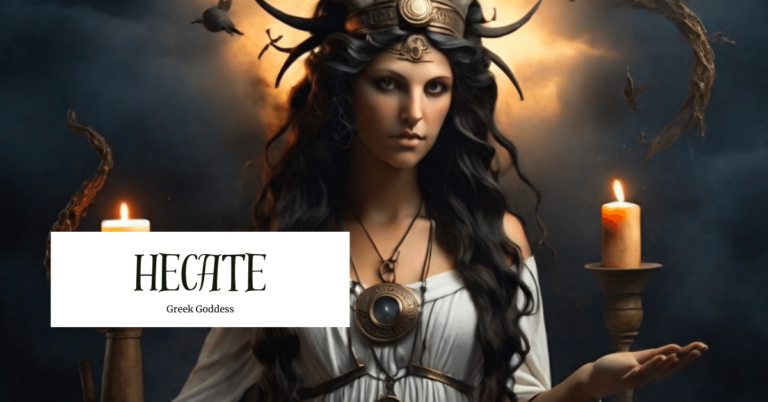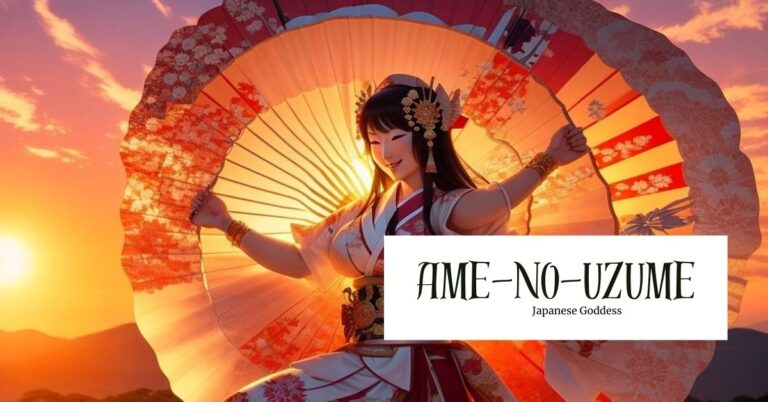Athena: Goddess of Wisdom, Craft, and Warfare
In ancient mythology, Athena is widely regarded as a legendary figure who embodies exceptional wisdom, unwavering courage, and unparalleled strategic prowess. As a highly esteemed and prominent goddess within Greek mythology, Athena has captivated the imagination of countless generations with her multifaceted persona and commanding presence. Her unparalleled intellect, strategic acumen, and unwavering resolve have made her an icon of strength and wisdom, inspiring countless individuals to strive for greatness and achieve their full potential. Athena’s impact on mythology and culture is nothing short of extraordinary, and her legacy continues to endure.
Overview of Athena
Athena, also known as Pallas Athena, held a significant position among the twelve Olympian gods and goddesses, earning reverence as the offspring of Zeus, the most eminent deity in the celestial hierarchy. Her mythos endures as a symbol of wisdom, bravery, martial insight, and advancing human civilization. The name Athena, derived from the Greek term “athēnē,” finds linguistic resonance with the ancient Greek verb “aēr,” which encompasses the idea of understanding, particularly in grasping the essence of a subject (Kapach). Her extensive influence spanned many domains, establishing her as a symbol of astute judgment and artistic mastery in Greek mythology.
Source: Adobe Stock
Titles
- Athena Parthenos
- Pallas
- Promachos
- Ergane
Abilities
Athena’s diverse repertoire of abilities emanated from the multifaceted essence of her divine persona, with each facet highlighting a distinctive aspect of her being. Her unparalleled wisdom and sagacity earned her reverence as the embodiment of knowledge (Atsma). This intellectual understanding was tangibly mirrored in her strategic brilliance in warfare, exemplified in her guidance of esteemed heroes like Odysseus during the tumultuous Trojan War (Kapach).
However, Athena’s prowess extended beyond the realm of battle. Her artistic talents shone in weaving, showcasing her ability to excel in strategic and creative pursuits (Cartwright). Moreover, Athena’s ingenuity became evident in the creation of the olive tree, an iconic symbol of prosperity and sustenance bestowed upon Athens. This manifestation of inventive genius underscores her diverse influence, encapsulating her character’s strategic and nurturing dimensions (Atsma).
Characteristics
The physical attributes of Athena were a profound reflection of her persona, which was defined by a complex amalgamation of strength and grace. She was revered as a commanding figure, with a stature often described as tall and imposing, as depicted in classical artwork. This portrayal, highlighted by her iconic armor, stood as a symbolic testament to her prowess in martial pursuits (Atsma).
The intensity of Athena’s character was mirrored in her steely gray eyes, which bore the weight of her wisdom and acumen and stood as a testament to her sagacity. Her confident demeanor projected an aura of self-assuredness and composure, further emphasizing her authority and poise. This harmonious blend of attributes seamlessly matched her warrior and sagacious counselor roles.
Indeed, Athena’s entire presence exuded an undeniable air of authority and astuteness, aptly befitting her multifaceted responsibilities. This amalgamation of attributes solidified her esteemed status and physically embodied the strategic brilliance and sagacious discernment that defined her essence.
Source: Old Paintings Tumblr
Traits
Athena’s paramount rationality and intellectual acumen were central to her character. This distinct trait elevated wisdom above impulsiveness, showcasing her reasonable and thoughtful approach to decision-making, which was a direct result of her sagacity. In conjunction with her rationality, Athena’s demeanor exuded maturity and discernment, which went hand in hand with her steadfast commitment to justice (Atsma). Her veneration for this virtue was tangibly expressed through her actions, further deepening the layers of her character and enriching her mythos.
Athena’s benevolence shone brightly through her patronage of Athens, a testament to her aspiration to elevate humanity through the channels of knowledge and civilization (Cartwright). Her character, multi-faceted and adorned with attributes like intelligence, integrity, and compassion, intricately contributed to the rich tapestry of Greek mythology. Athena, as a deity of profound complexity, continues to be a timeless emblem of wisdom and virtue in the annals of human storytelling.
Symbols
Athena’s symbols were powerful representations, encapsulating the vast scope of her dominion. The owl, a creature symbolizing wisdom and vigilance, is profoundly associated with Athena’s persona, signifying her sagacity and watchful guardianship. The olive tree, a significant offering from Athena to Athens, also stood as a living embodiment of peace and prosperity. This symbol echoed her nurturing and benevolent qualities, reinforcing her multifaceted influence (Kapach).
On the other hand, her martial prowess was eloquently represented by her shield and spear, iconic emblems of warfare that underscored her strategic acumen. Moreover, the aegis, a protective cloak or shield adorned with the Gorgon’s head, emphasized her divine authority and power, enhancing her commanding presence (“Athena – New World Encyclopedia”).
Each symbol served as a visual prism through which Athena’s diverse dimensions were refracted. Collectively, they symbolized her multifaceted nature and spotlighted her significance across various realms, cementing her status as an embodiment of wisdom, strength, and strategic mastery
Source: The Demonic Paradise Wiki
Festivals and Rituals
Ancient Greek culture was significantly influenced by Athena, whose impact was evident in the various rituals and festivals that were celebrated. One of the most prominent celebrations, the Panathenaia, was a clear testament to Athena’s revered status. It was a grand event that involved athletic competitions, musical showcases, and dramatic performances, all of which emphasized Athena’s patronage of intellectual and physical pursuits (“Athena – New World Encyclopedia”). The festival served as a vivid example of the breadth of Athena’s influence on various aspects of society.
The Parthenon, an impressive architectural wonder dedicated to Athena Parthenos, was a constant reminder of her enduring presence. This monumental structure symbolized her role as the guardian and patron of the city, serving as a tangible testament to her timeless influence. Additionally, various rituals, such as the reenactment of her contest with Poseidon, reinforced her connection with wisdom and highlighted her pivotal role in shaping the city’s identity. These intricate rituals and grand festivals serve as enduring tributes to Athena’s multifaceted persona and diverse contributions, encapsulating the essence of her revered position within Greek society.
Source: Saatchi Art
Legends associated with Athena
Athena, the goddess of wisdom, courage, and strategic prowess, has been a key figure in Greek mythology for centuries, captivating the imagination of countless generations. Her myths and legends have offered invaluable insights into her origins, her unique attributes, and her enduring impact on the world around us. Through her stories, we understand the importance of wisdom, courage, and strategic thinking in all aspects of life.
Origin story
The story of Athena’s birth is intricately tied to the tumultuous dynamics of the divine realm. According to legend, Athena was born from the forehead of her father, Zeus. This extraordinary birth resulted from Zeus ingesting his first wife, Metis, who was carrying Athena. A prophecy had foretold that Metis’ offspring would surpass Zeus in power, so to prevent this from happening, Zeus consumed Metis, not knowing that Metis was pregnant with Athena.
After eating his wife, Zeus was plagued by a severe headache and sought relief by having Hephaestus cleave open his head with an ax. However, it was then that Athena emerged fully grown and armored, symbolizing her immediate readiness for battle and her unique status among the Olympian deities (Atsma).
The myth of Athena’s birth captures the complexities of divine prophecy and power dynamics. Athena’s emergence, fully formed and clad in armor, represents her martial prowess and strategic insight, positioning her as a formidable warrior goddess from birth. Although variations of this origin story may exist in different retellings and interpretations, the core elements of Athena’s birth from Zeus’s forehead and her immediate manifestation as a warrior goddess remain constant.
Source: The Historian’s Hut
The Battle for Athens: A Fight for Power and Glory
The myth of Athena and Poseidon competing for patronage over Athens is well-known and highlights the importance of the goddess in the city’s identity. The citizens of Athens desired a patron deity who could bestow a meaningful gift upon the town. Athena and Poseidon, two powerful Olympian deities, responded by presenting their offerings and competing for the coveted role of protector. The sea god Poseidon used his trident to strike the ground, causing a spring of salt water to gush forth. However, Athena’s offering was equally significant and demonstrated her wisdom and benevolence. She gifted the city the olive tree, symbolizing peace, prosperity, and fertility (Cartwright).
The Athenians were faced with a pivotal decision: to choose between Poseidon’s gift of a saltwater spring or Athena’s gift of an olive tree. Their choice determined their patron deity and symbolized their values and aspirations as a city. Ultimately, the Athenians chose Athena’s gift of the olive tree, recognizing the intrinsic value of peace and abundance. This choice established Athena as the city’s patron goddess and solidified her role as a protector and provider. Her gift resonated deeply with the Athenians, signifying her influence over their agriculture, economy, and overall well-being.
Source: Getty Images
The Story of Erichthonius
The tale of Erichthonius is a captivating myth that showcases Athena’s protective and compassionate nature, as well as her significance in shaping the destiny of mortals. Erichthonius, born to the Earth goddess Gaia and the divine blacksmith Hephaestus, had a unique and intriguing form that was a combination of human and serpent. In some versions of the myth, Athena’s involvement begins with Hephaestus attempting to rape her, resulting in his seed falling on the earth and fertilizing Gaia, leading to Erichthonius’s birth. Athena, in her wisdom and benevolence, took Erichthonius under her wing and concealed him in a chest, which she entrusted to the daughters of Cecrops, the first king of Athens. This act protected the vulnerable Erichthonius and established Athena’s connection to the city.
Athena’s decision to care for Erichthonius rather than reject him emphasizes her nurturing and protective nature. She embraced his uniqueness and elevated him from a vulnerable infant to a protected and esteemed figure. In doing so, Athena demonstrated her capacity to value and shelter those who might be viewed as different or unconventional (Wikipedia Contributors).
Moreover, the myth of Erichthonius solidifies Athena’s bond with Athens. The chest containing Erichthonius was placed within a sacred temple on the Acropolis, becoming a potent symbol of Athena’s guardianship over the city. The people of Athens revered Erichthonius as a revered ancestor, further reinforcing Athena’s role as a city’s protector.
Source: Peter Paul Rubens
Influences of other religions/cultures on Athena
The significance of Athena, a figure from Greek mythology, extends beyond the boundaries of ancient Greece. Her persona embodies wisdom, a concept that transcends cultural and temporal boundaries and is present in other religious traditions worldwide. The Hindu goddess Saraswati, for example, shares similar attributes as a deity of knowledge and learning. Saraswati is celebrated for her embodiment of wisdom, music, and arts in Hinduism, and her association with education, the arts, and intellectual pursuits closely aligns with Athena’s role as the patroness of wisdom, strategy, and creative endeavors.
The similarities between the Roman goddess Minerva and the Greek goddess Athena are noteworthy. Both are considered goddesses of wisdom, medicine, arts, and strategy, indicating the enduring importance of knowledge across various cultures (Wikipedia Contributors). These parallels provide valuable insights into the transcendent nature of wisdom as an archetype. The universal appeal of learning demonstrates shared aspirations and values that transcend cultural boundaries. Athena’s influence extends beyond her Greek origins, creating a tapestry of universal wisdom that unites diverse religious and cultural narratives.
Modern appearances
The significance and lasting impact of Athena on contemporary society cannot be overstated. As the embodiment of wisdom and intellect, she serves as a source of inspiration for educational institutions and organizations that prioritize knowledge and strategic acumen. Athena’s multifaceted character is evident in various art forms, literature, and media, which bear witness to her enduring relevance and ability to capture the modern imagination. One of the most notable examples of Athena’s legacy is the city of Athens, which remains a cultural and intellectual hub that reinforces the goddess’s connection to wisdom, knowledge, and strategic brilliance (Wikipedia Contributors).
Source: agefotostock
Final thoughts
The legends surrounding Athena, the Greek goddess, offer a fascinating glimpse into her multifaceted character. From her extraordinary birth to her role as a guardian and patron, these myths underscore her diverse attributes: wisdom, courage, and artistic flair. It is noteworthy that Athena’s influence extends beyond the confines of Greek mythology and reverberates across cultures and modernity. As such, she emerges as a timeless symbol of wisdom, guidance, and unwavering feminine strength, capturing the essence of enduring myth and eternal wisdom. It is clear from the myriad of tales surrounding her that Athena is a figure of great complexity, embodying both the virtues and vices that define humanity. Nevertheless, her unwavering commitment to truth, justice, and the greater good has endeared her to generations of people, making her an icon of enduring appeal and inspiration.
References
“Athena – New World Encyclopedia.” Www.newworldencyclopedia.org, www.newworldencyclopedia.org/entry/Athena.
Atsma, Aaron. “ATHENA – Greek Goddess of Wisdom, War & Crafts.” Theoi Greek Mythology, 2000, www.theoi.com/Olympios/Athena.html.
Cartwright, Mark. “Athena.” World History Encyclopedia, 24 May 2012, www.worldhistory.org/athena/.
Kapach, Avi. “Athena.” Mythopedia, 6 Dec. 2022, mythopedia.com/topics/athena.
Wikipedia Contributors. “Athena.” Wikipedia, Wikimedia Foundation, 14 Dec. 2018, en.wikipedia.org/wiki/Athena.


